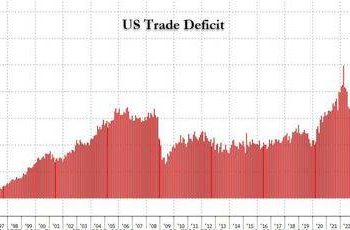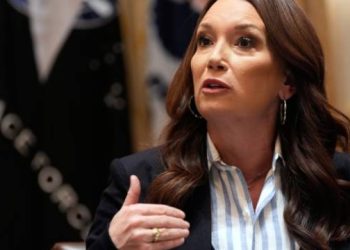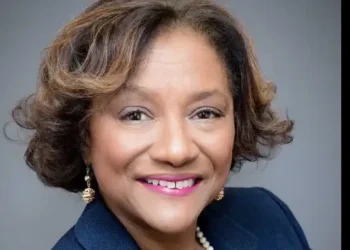J.D. Vance spent three days meeting with House Speaker Mike Johnson (R-LA) this week to renegotiate a spending deal derailed by former President Donald Trump on Wednesday. Vance also made stops in the Senate, helping shepherd controversial Trump Cabinet nominees through meetings with skeptical senators.
On Capitol Hill, Vance has struck a partisan tone. He dared Democrats to reject a GOP-only spending compromise on Thursday as the government edged closer to a shutdown. Regarding Trump’s nominee for defense secretary, Pete Hegseth, Vance dismissed allegations of sexual assault as “a sham hearing from the American media.”
Behind the scenes, however, many Republicans view Vance as a constructive force capable of navigating the tumult expected over the next four years. Senators describe him as a clear communicator with a willingness to find compromises that meet the demands of an unruly House and a confrontational president.
“His presence here, I think, is helpful as he’s talking to folks in the House, talking to folks in the Senate, and trying to figure out how you find a path out of the woods,” said Sen. Lisa Murkowski (R-AK), a centrist.
Vance’s role as Vice President aligns with his reputation as a serious legislator. His loyalty to Trump won him the spot on the ticket, but he also worked across the aisle on legislation, such as a rail safety bill that nearly passed last year. While his constitutional role is limited to casting tiebreaking Senate votes, Republicans see him playing a more substantive role in advancing Trump’s agenda, including tax cuts, energy reform, and border security.
Sen. John Kennedy (R-LA) praised Vance after a GOP luncheon discussing the spending impasse. “J.D. will be up here for his big brain,” Kennedy said. “He exercises power maturely. He’s human, but he’s not vindictive. I mean, he’s a deep thinker.”
Still, Vance’s influence has limits. He and Trump were unable to sway Congress to lift the federal debt limit, a demand that disrupted spending negotiations. Moreover, as a junior senator, Vance sometimes clashed with party leadership, especially over issues such as Ukraine funding.
Despite these challenges, colleagues view Vance as a bridge between Trumpworld and more centrist factions in Congress. Sen. Susan Collins (R-ME), a frequent Trump critic, acknowledged she’s been in touch with Vance during the presidential transition. “To be able to have that kind of access is really important. And he knows all of us, which is also a plus,” said Collins, the incoming chair of the Senate Appropriations Committee.
Vance follows a long tradition of vice presidents playing pivotal roles on Capitol Hill. Joe Biden used his Senate ties to negotiate critical deals for President Barack Obama, while Mike Pence acted as Trump’s intermediary during government funding standoffs.
However, Vance’s Senate connections, coupled with his calm demeanor, distinguish him. “He doesn’t get flustered. He’s not an ego guy,” said Sen. Tommy Tuberville (R-AL), a Trump ally. Vance’s efforts, Tuberville added, reflect his skill at balancing loyalty to Trump with his role as a legislative mediator.
 Telegram is where we really talk. Don't miss out!
Telegram is where we really talk. Don't miss out!








